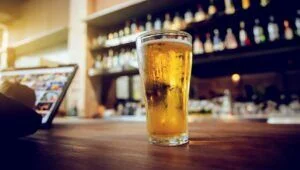Dram shop liability is a law that holds bars and restaurants responsible if they serve alcohol to someone they should not have sold to.
Dram shop liability laws vary from state to state, but the basic principle is the same. If a bar or restaurant serves alcohol to someone who is visibly intoxicated or underage, and that person then causes an accident that injures someone else, the establishment can be held liable.
This means that compensation for victims of dram shop violations can include damages for medical expenses, lost wages, and even pain and suffering. The goal of these laws is to prevent businesses from overserving alcohol and to encourage responsible serving practices.
The Basics of Dram Shop Laws
The term dram shop might sound old-fashioned, and it is. It comes from a time when alcohol was sold by the dram, which is a small unit of measurement. But while the name is old, the law is very much still in use today.
Dram shop laws exist in many states across the U.S., but the exact rules can vary depending on where you are. The common thread is this: if a business serves alcohol to someone who is obviously drunk or underage, and that person ends up causing an accident, the business can be held legally responsible for the harm that follows.
In a personal injury case, this means that if you’re the one who got hurt, you could sue not just the person who caused the accident but also the place that irresponsibly served them alcohol. That might help you get money to cover things like medical bills, lost income from missing work, or even the pain you’ve gone through since the accident.
Related insight: This article dives even deeper into the topic.
How Dram Shop Liability Impacts Injury Claims
In most car accidents or personal injury cases, the focus is on the person who directly caused the harm, particularly the drunk driver. But dram shop liability opens up a second route. If you can show that a bar or restaurant played a role by overserving someone, that place can also be brought into the case.
This can really matter if the person who caused the accident doesn’t have enough insurance or assets to cover your losses. Let’s say your medical bills are $100,000, but the drunk driver only has $25,000 in insurance. If a bar served them while they were visibly intoxicated, you could potentially sue the bar for the remaining $75,000.
Furthermore, these laws also make sure that businesses take their role seriously. If they choose to serve alcohol, they also need to be responsible about how and when they do it.
What You Need to Prove in a Dram Shop Case
Proving that a bar or restaurant should be held responsible isn’t always easy, but it’s possible with the right evidence.
First, you have to show that the business served alcohol to someone who was either already clearly drunk or under the legal drinking age. That alone isn’t enough, though. You also need to show that this act of overserving directly led to the accident that caused your injury.
That can involve digging up a lot of evidence. You might need things like security footage from the bar, receipts showing how much alcohol the person was served, and statements from people who were there at the time.
Sometimes, expert witnesses, like toxicologists or bartending professionals, are brought in to explain just how drunk someone would’ve appeared based on what they drank and how fast they drank it.
And because every state has its own specific rules and deadlines, working with a lawyer who knows how dram shop cases work in your state is almost always necessary. These cases can get complicated fast, and you don’t want to miss your chance to take legal action because of a technicality.
If you enjoyed this post, you’ll love what’s featured on 2A Magazine.







